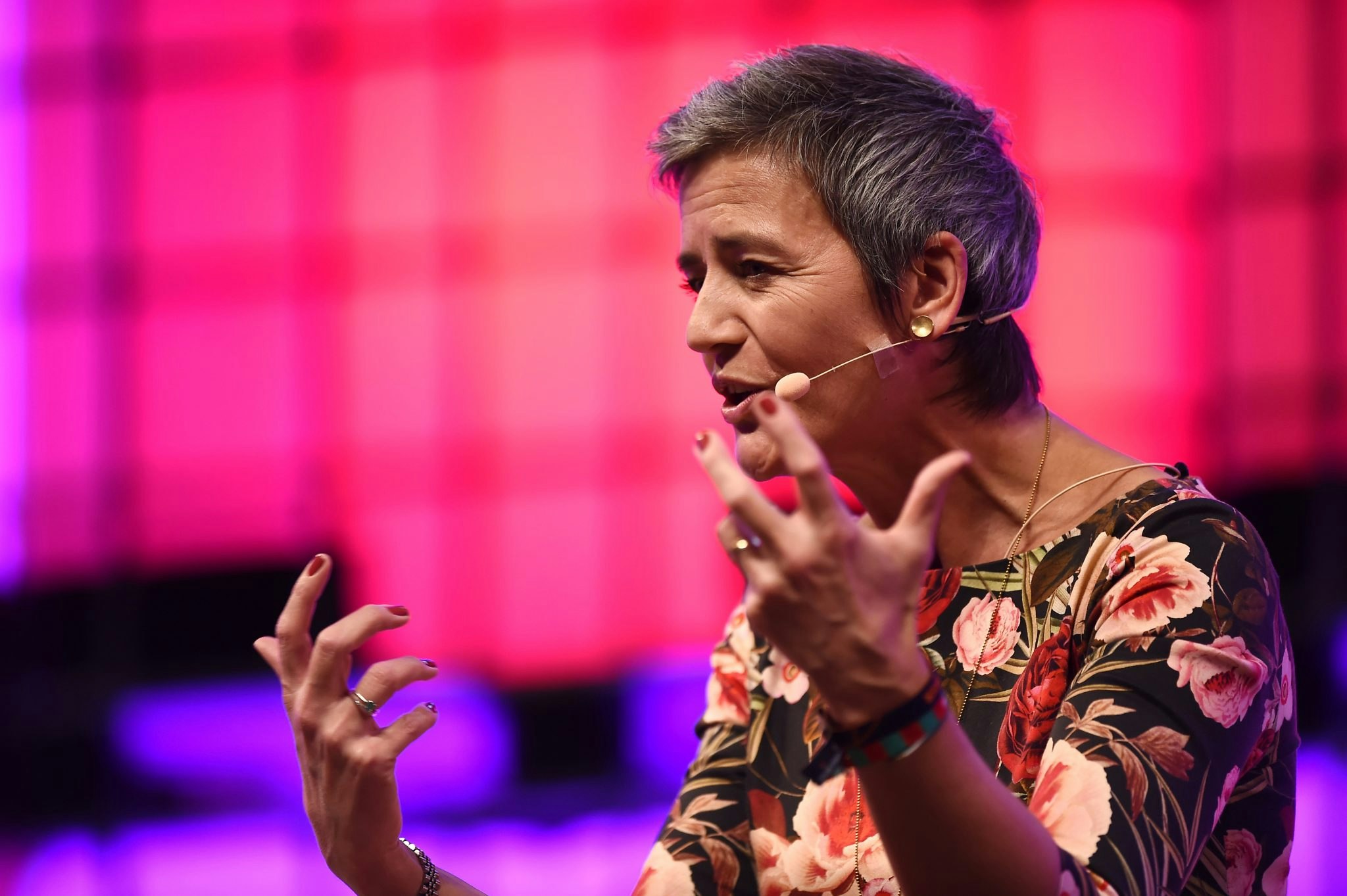European semiconductor startups are grappling with their biggest market, China, increasingly becoming off limits, as US export and investment controls start to bite.
More than a year after the US issued sweeping export restrictions aimed at curtailing Chinese military modernisation by limiting the country’s ability to get advanced chips, Europe, home to 8.6% of VC-funded semiconductor startups globally, is starting to roll out similar curbs over its semiconductor startups — under heavy pressure from Washington.
Founders warn the restrictions are hindering their startups’ growth potential — the Chinese semiconductor market was worth $179.5bn in 2023, according to consultancy firm Maximize Market Research. They say that Europe encouraging more of its own semiconductor capacity will depend on them being able to sell to big markets, even if those are not necessarily politically aligned with the region.
Navigating export controls
Dutch chips manufacturer ASML, one of Europe’s biggest companies in this sector, is the latest business to feel the impact. Last week it confirmed it had cancelled shipments to China of two types of deep ultraviolet lithography machines – key components in chipmaking – because its export licence was “partially revoked by the Dutch government.”
The UK government, meanwhile, blocked 14 licence applications for British companies seeking to export semiconductor technology to China in 2023, and approved just two, according to official data. That represents a refusal rate of 87.5%; in 2022 it rejected just 16% of applications.
Startup founders have got the message; some of them are deciding against selling their machines to China to avoid the bureaucratic hassle of a rejected export application.
Simon Thomas, founder and CEO of Paragraf, a Cambridge-based startup developing graphene-based semiconductors, says his company decided not to sell a magnetic field sensor, capable of operating in high-radiation environments, in China because it could have been of interest to the Chinese military.
Paragraf is close to commercialising other biosensors — tiny smart devices based on semiconductors which are replacing costly conventional sensors across many applications including navigation systems and health monitors — and Thomas says these are more likely to be subject to UK government export restrictions.
“My biggest concern is we could be trading somewhere and in the future be told to stop, and if we have developed a significant market in that country, that would be very damaging to the business,” he says.
Diversifying markets
British chipmaker Graphcore confirmed to Sifted that it had had to pull out of China in the face of US export controls. The struggling startup is laying off most of its staff in the country and discontinuing sales there.
Two weeks ago, Cambridge-based semiconductor firm ARM laid off 70 software engineering employees based in China, the firm’s second-largest market with about 200 customers.
Thomas says concerns over how the UK government could restrict trade with China has led Paragraf to explore other Asian markets “with more vigour” and make South Korea its top target in the continent.
“If you think about it, we are actually limiting our business case, because if we are not free to trade everywhere, or we are free to trade everywhere but we are limiting ourselves in case something happens in the future, we are limiting the profitability and the growth of the company,” he says.
Paragraf is considering creating a Singapore-based entity to trade across Asia. It is also using an external distributor to trade with China, which acts as a firewall, Thomas says. “Should there be any problems in the future, it is much easier to disconnect from a distributor than a customer, especially a customer you have a contract with,” he adds.
Looking for alternatives
Some European startups are keeping a close eye on various projects to build new fabrication plants for semiconductors, or fabs, especially in the US, aimed at reducing Western companies’ reliance on Taiwan-based TSMC, and on Intel’s decision to open up its new foundries to other players.
But these sites won’t become an alternative for European startups developing chips of four nanometers (nm) or less, which remain TSMC’s monopoly, and a change of foundry for less-advanced chips would be a high-risk decision, says Philippe Notton, CEO and founder of French chipmaker SiPearl.
“The foundry is something you select at the beginning of the design phase of a chip, not at the end,” he says. “Using a different foundry, not the mainstream one, could be seen as dangerous by our investors — even by my CTO.”
Jan Goetz, CEO and cofounder of Finnish quantum and chip startup IQM, says his company is in constant communication with the Finnish foreign ministry over the trade restrictions and is building a “second-sourcing strategy” to make sure it has alternatives to all the components of its quantum computers that currently come from China.
The US rules, unveiled in October 2022, ban US citizens from supporting China’s chipmakers — even if they work for European startups designing or producing semiconductors, as either shareholders or managers, for instance.
The US curbs also restrict non-US companies using US technology from partnering with Chinese counterparts. And some of the investments being made by US companies in European chipmakers might require restrictions on how they engage with Chinese firms.
SiPearl’s Notton says these rules are making his company consider very seriously the convenience of moving some of its design activity to the US because doing so would bring the French startup under the scope of the US citizenship restrictions. “In terms of the citizenship of the employees, this has a lot of impact,” he says.
Still, some European startups are looking at moving to the US to benefit from the US Chips Act and raise money from US VCs, while another group of founders who prefer staying in Europe are partnering with local US companies who have raised US VC money and have qualified to receive funding from the US government’s chip initiatives, says Sami Moughrabie, managing partner at deeptech VC Atmos Ventures.
Changing investment plans — Asia to the Middle East
The US’s stance is also impacting which kinds of investors Europe’s semiconductor startups — and those selling other strategic deeptech — can access.
“Institutional investors, publicly funded investors, are saying, ‘We would not like having Chinese investors in the cap table,’ or, ‘It could become a problem.’ So you already sense this defensiveness, very much influenced by the US,” says Wolfgang Neubert, a Vienna-based partner at Amadeus Capital and APEX Ventures, a European early-stage VC fund for startups grounded in protectable technology, including some working on semiconductors.
Eastern finance, not just Chinese investment, has been “marked a bit” by the US’s decision to scrutinise Chinese capital flowing into Western tech companies, says Paragraf's Thomas, and this is reducing the global equity base his company can tap into in its current fundraising drive to boost its manufacturing capabilities.
“There’s a lot of mistrust that even if you’re getting money from Singapore or Malaysia, it’s actually coming from somebody in China,” he says. “We’ve talked to funds out of South Korea, Japan and Singapore, and in all cases when we talk to the fundraisers raising those funds they say, ‘We are actively talking to people from China, raising capital from China’. That’s making everybody else nervy.”
European investors are advising founders, especially those based in the UK and the Netherlands, where governments have taken a more hawkish approach towards Chinese investment, to stay clear of Chinese and Asian capital, agrees Arjan Göbel, partner at FORWARD.one, a Dutch VC firm that invests in early-stage semiconductor startups but “deliberately tries to avoid investing in companies with Chinese or Asian owners.”
Some European chip startups are looking at investment from the Middle East, specifically Saudi Arabia and the UAE, which are emerging as an “intriguing alternative” to China, says Moughrabie.
As autocratic states, they boast faster decision-making processes compared to the EU and exhibit a strong appetite for technology and knowledge transfer, investing substantially in frontier technologies and local talent development. In return, Middle East investors are happy to provide the much-needed commercial contracts that will allow some of the startups to survive, he adds.
However, their favourable ties with China have led to some instances of US intervention.
Notton of SiPearl, which is about to announce an extension to its Series A round, says his startup is “screening” Asian and Middle Eastern investors to ensure it is safe to bring them on board its cap table. “In the Middle East, it can be complex to find out which parties are behind but in the end, there are some flagships and quite famous investors we know are safe,” he says.


